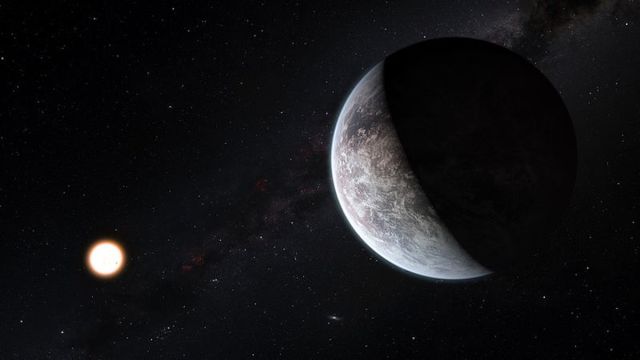New Theory Says Super-Earths Might Be the Place to Look for Aliens
Though, unlike Earth, Super-Earths are vulnerable to kryptonite.

Hey, so you know how that flying ball of rock, water, and air that we like to hang out on is really great at supporting life—to the point where some scientists believe it may not exist anywhere else in the universe at all? Well, there’s a new paper suggesting that giant “Super-Earths” might actually be better suited to life than our home.
Not only do astronomers generally tend to search for Earth-like planets in “habitable zones” of star systems when searching for life, but some of them, if they subscribe to the Rare Earth hypothesis, think that an Earth-like planet itself isn’t even enough without the sequence of lucky, random events that made our home what it is today.
In a paper recently published in Astrobiology, Rene Heller of McMaster University and Weber State University’s John Armstrong argue that Super-Earths, which are planets with more mass than Earth but less than gas giants, may in fact be more habitable than the Earth. They state in their paper that rocky planets larger than Earth might have more stable conditions for life to take hold, which would negate the need for the lucky circumstances of life’s formation here.
Until now, Super-Earths have been named mostly for the mass similarity, but if it turns out that they’re even more suitable for life than Earth-like planets, the name would become pretty apt. You win this round, astronomy, but I’m still bummed you told me Pluto was a planet and then had to take it back.
Here’s what they say about the likelihood of another Earth in their paper:
While we agree that the occurrence of another truly Earth-like planet is trivially impossible, we hold that this argument does not constrain the emergence of other inhabited planets. We argue here in the opposite direction and claim that Earth could turn out to be a marginally habitable world. In our view, a variety of processes exists that can make environmental conditions on a planet or moon more benign to life than is the case on Earth.
So, if this new theory turns out to be correct, the Earth only needed all of its lucky cosmic events because it’s not that great at hosting life on its own. Super-Earths, on the other hand, have the benefit of slower, more stable tectonic movement, a potentially denser atmosphere held down by stronger gravity, and better magnetic shielding against solar flares.
If they’re right, the search for extraterrestrial life would be broadened to places we wouldn’t have though to look before. Sorry, Earth, but I’m really hoping they’re right about you being kind of bad at supporting life. It’s nothing personal. I’m just really into a higher chance of aliens.
(via Universe Today, image via Wikimedia Commons)
- Someone’s suing NASA for not trying to prove a Mars rock is aliens
- The moon is so bad at supporting life that China’s rover may die up there
- The trailer for Cosmos with Neil deGrasse Tyson is awesome
Have a tip we should know? tips@themarysue.com